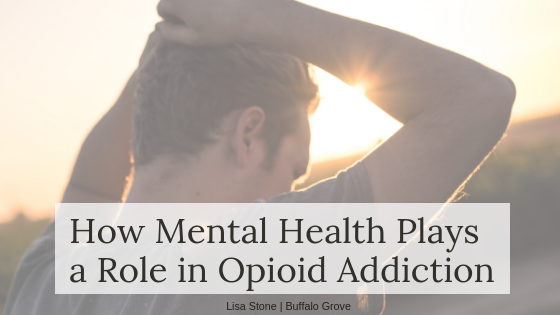While many search to understand how the opioid crisis has grown so significantly in our nation, mental health experts have continuously examined the correlation between mental health disorders and the rise of opioid abuse. Many people struggling with opioid addiction are also facing mental health issues, the two of which are commonly intertwined. Not only is it important for loved ones to understand this connection, but even more so for lawmakers. Our country needs to recognize the importance of education and awareness to both mental health and opioid addiction to decrease the amount of abuse and accidental overdoses that are occurring at alarming rates throughout the country.
Opioid abuse can be easily linked to mental health disorders such as depression and anxiety. Those suffering from one of these issues are at a greater risk to attribute the other. An estimated 7.2 million individuals with anxiety or depression are prescribed opioids, and unfortunately, overprescription of opioids is all too common in many doctor offices around the country. In a study conducted at St. Louis University, researchers discovered that out of 100,000 patients, over 10 percent developed depression after being prescribed opioids for the treatment of other ailments. While depression can develop from the use of opioids, many individuals also begin using opioids to self-medicate and escape from mental disorders, such as depression. In a vicious circle, opioid dependency can cause users to turn to use heroin as a cheaper, more easily accessible alternative.
One in four adults with a mental illness is also suffering from a substance abuse disorder. The two combined poses increased risks for suicide, with as high as 35 percent of heroin users death caused by suicide. The increased risks and symptoms associated with both mental illness and addiction need to be treated in a dual diagnosis program that works to address both issues.
When users abuse opioids and heroin while suffering from a mental health disorder, finding the right comprehensive treatment is vital. Many inpatient and outpatient programs will address dual diagnosis by offering individualized counseling, support groups, and education about both mental health and addiction.
It is vital that we as a nation understand the correlation between mental health and opioid addiction to help put an end to the crisis we are currently facing. By raising awareness and furthering education and access to treatment plans, we can offer better solutions to those suffering from mental health disorders so they do not turn to opioids, and we can provide more comprehensive treatment to those who suffer from mental illness and addiction simultaneously.

